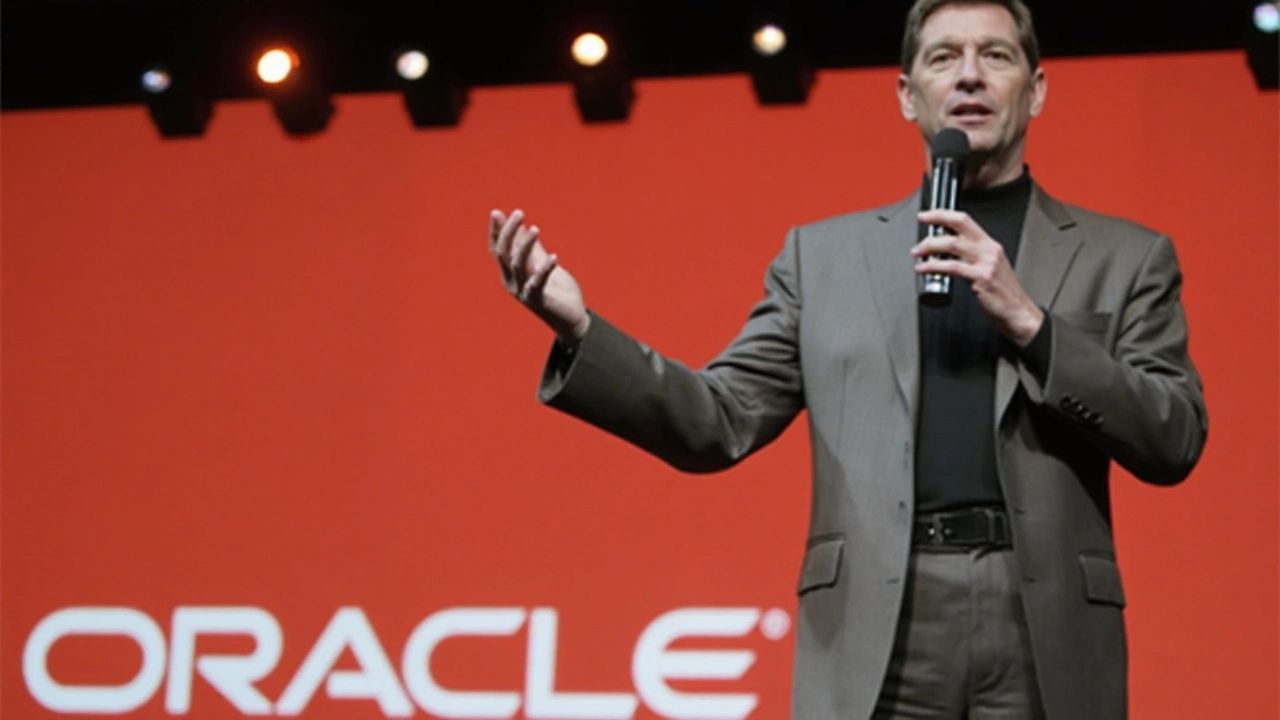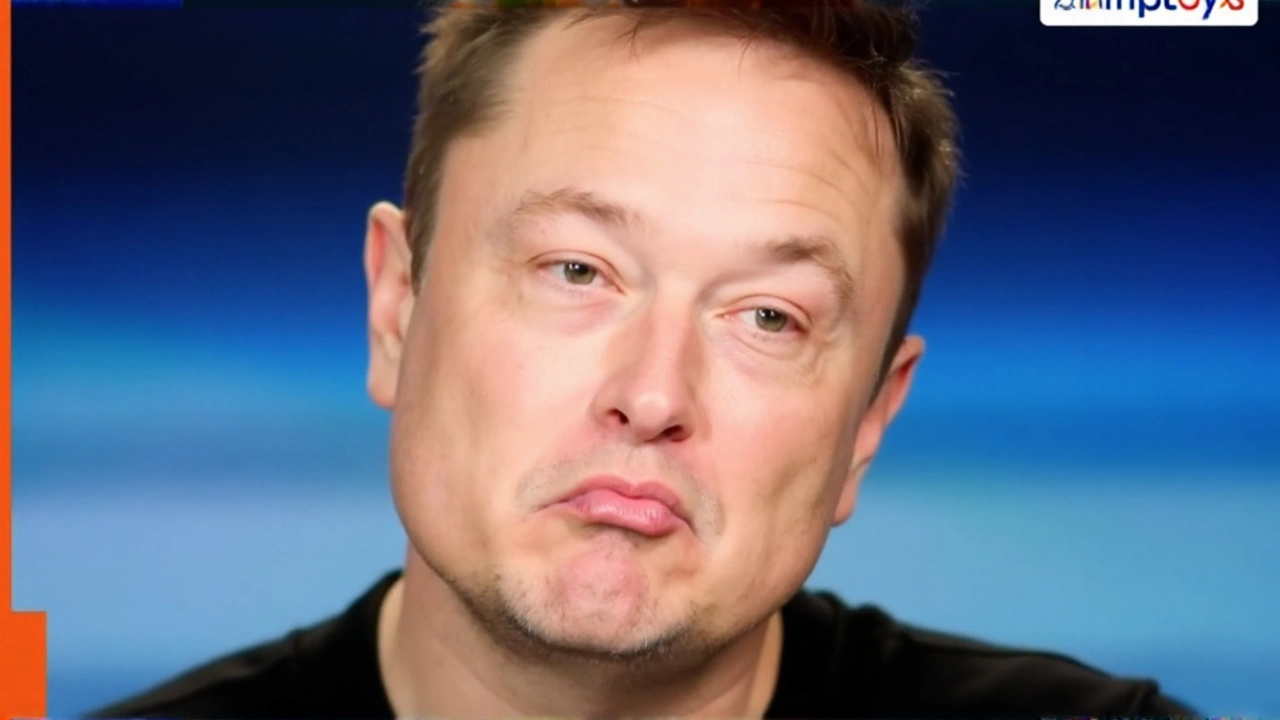A $100 billion swing in a single day
One trading day added more than $100 billion to Larry Ellison’s fortune. The 81-year-old Oracle chair and CTO briefly overtook Elon Musk as the world’s richest person on Wednesday, September 10, 2025, after Oracle shares spiked more than 40% to $338. The Bloomberg Billionaires Index pegged Ellison’s net worth at $393 billion at the close, versus Musk’s $385 billion. By the next morning, Musk had nudged back in front by about $1 billion, but the message was clear: the AI trade is powerful enough to rewrite the leaderboard overnight.
The move set a new mark for wealth volatility at the top. Bloomberg’s ranking updates after New York’s market close, marking founders’ fortunes to the daily price of their holdings. When a company’s stock gaps higher on earnings and guidance—especially one controlled by a founder with a massive stake—the math can produce eye-watering, record-setting jumps. Ellison reportedly owns around 1.16 billion Oracle shares, so a vertical move in the stock translates directly into a vertical move in personal wealth.
Oracle’s rally followed quarterly results that exceeded expectations and fresh guidance pointing to stronger growth ahead in cloud and AI services. On the earnings call, Ellison told analysts the company has become a preferred destination for AI workloads. Investors took him at his word—and then some. The stock’s surge was amplified by large contract announcements tied to marquee names in the AI ecosystem, including OpenAI, Meta, and Nvidia.
For Ellison, the moment capped a rapid climb up the rankings this year. He had already passed Mark Zuckerberg and Jeff Bezos, moving from fourth to second, riding a market that has rewarded the companies providing the plumbing of the AI boom. His brief stint at No. 1 dethroned Musk, who has worn the crown off and on since 2021 and last year became the first person ever to see a $400 billion net worth on Bloomberg’s list.

What powered Oracle’s spike — and Ellison’s lead
Oracle’s pitch is straightforward: the company says its cloud is built to move AI training and inference at scale, with a network architecture designed for ultra-fast interconnects and massive GPU clusters. That’s a mouthful, but in practice it means AI developers can train very large models—and run them cheaply and quickly—without re-architecting everything from scratch. In a year when access to high-end chips has become a competitive advantage, that’s a selling point investors can model.
Three forces came together to fuel the stock’s jump:
- Stronger-than-expected earnings: Revenue and margins came in ahead of forecasts, easing concern that Oracle’s pivot to cloud would be slow or margin-dilutive.
- AI contract momentum: New and expanded agreements with OpenAI, Meta, and Nvidia signaled demand for Oracle’s AI infrastructure, not just talk about it.
- Confident guidance: Management pointed to a busier pipeline and capacity adds that could turn backlog into revenue faster than feared.
To be clear, Oracle is still competing with giants. Amazon Web Services, Microsoft Azure, and Google Cloud dominate market share, and they’re building their own AI supercomputers and custom chips. Oracle’s argument is that its Gen 2 cloud, database heritage, and willingness to co-engineer large clusters with partners give it a lane where performance and price matter more than brand.
Ellison’s wealth is tied tightly to this thesis. Few founders at his level still hold such a concentrated stake in their original company, and fewer still have ridden a late-career renaissance like this one. The magnitude of Wednesday’s move reflected not just Oracle’s print, but also how much of Ellison’s net worth sits in Oracle stock.
For Musk, the brief slip to No. 2 said more about the mechanics of day-to-day wealth tracking than any change in his longer-term position. His fortune is anchored to Tesla—plus stakes in SpaceX and other ventures—and has swung with Tesla’s share price and headlines around production, pricing, and regulatory fights. Over the past 16 months he had remained on top despite bouts of volatility, even after earlier periods when Jeff Bezos and LVMH’s Bernard Arnault took turns at No. 1.
What made Ellison’s move historic was the speed. Bloomberg’s index has logged plenty of double-digit-billion swings for tech founders on days when markets repriced risk or rewarded earnings beats. A $100 billion-plus gain in a single session is in a different league, an outlier born from a tight float, concentrated ownership, and an AI market that has little patience for wait-and-see.
The backdrop is the AI buildout. Companies across the stack are racing to secure GPUs, build data centers, and sign long-term capacity deals. Cloud providers are pre-ordering hardware years out. Enterprises are testing ways to connect their core systems to large models without blowing up security or costs. In that scramble, Oracle has pitched its infrastructure as both high-performance and cost-competitive, wrapping AI workloads around its database products and enterprise software footprint.
There’s also a strategic angle. Partnerships with Nvidia help solve the supply side of the equation—getting access to top-tier chips and networking. Ties with model developers like OpenAI and platforms like Meta create demand and proof points. If those deals ramp, they can feed utilization, which feeds revenue leverage, which shows up in margins that matter to public-market investors.
Skeptics will point to execution risk. Scaling AI clusters is capital intensive. Data center buildouts are complex and require power, land, and local approvals. Competitors aren’t standing still. And in the AI services world, the distance between pilot projects and repeatable, profitable workloads can be longer than optimistic guidance implies. Those caveats didn’t slow the buying on Wednesday, but they set the bar for future quarters.
Ellison’s track record helps explain the market’s willingness to give Oracle the benefit of the doubt. He co-founded the company in 1977 and turned a relational database into a cornerstone of enterprise IT. Over the decades, Oracle stitched together a sprawling software empire through internal development and acquisitions. More recently, it absorbed Cerner to bolster its presence in healthcare data, an area with obvious AI angles if privacy and reliability are handled correctly.
The wealth rankings themselves are a reminder of how distorted the top end of markets has become. When a founder’s net worth can swing by the GDP of a small country in hours, it tells you less about cash in the bank and more about the price at which a market would trade a controlling stake today. Bloomberg factors in public holdings, private valuations where available, and liabilities, then updates at the end of each New York trading day. That cadence is why Musk reclaimed the top spot Thursday morning—fresh prices, fresh math.
The tech cohort still dominates the upper ranks. Beyond Ellison and Musk, Bezos and Zuckerberg remain in the mix, each benefitting from their own AI narratives—AWS as the plumbing for model builders, Meta as both builder and platform. The order can flip when one stock catches a bid or another hits a patch of turbulence. The theme holding it together is AI’s pull on capital and attention.
For investors, Oracle’s surge raises two big questions. First, is the company’s AI backlog real enough to convert into revenue at the pace implied by Wednesday’s repricing? Second, can the company keep finding capacity—chips, power, and partners—fast enough to meet the demand it’s signaling? If the answers lean yes, Ellison’s brief turn at No. 1 may not be a one-off.
For now, the milestone is a neat snapshot of where money is flowing. Products that can run and scale AI workloads are drawing contracts, and the market is rewarding the perceived winners with premium valuations. In that environment, fortunes tied to cloud capacity, GPUs, and enterprise AI will keep moving in step with earnings calls and supply chain updates—sometimes by hundreds of billions of dollars in a single, breathless day.




